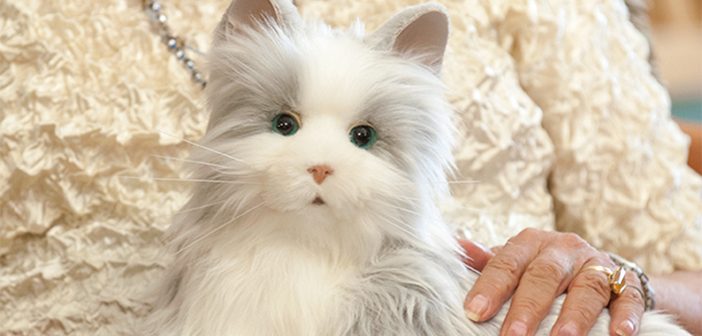A Brown/Hasbro team is designing smart animatronic cats and dogs to help older adults with everyday tasks.
A group of academic researchers, led by cognitive and computer scientists from Brown University, is teaming up with a cross-functional team from global play and entertainment leader Hasbro to design a smart robotic companion capable of assisting older people with simple but sometimes challenging tasks of everyday living.
The project, dubbed ARIES (Affordable Robotic Intelligence for Elderly Support), will add artificial intelligence capabilities to Hasbro’s current Joy for All Companion Pets—animatronic dogs and cats designed to provide interactive companionship, comfort, and joy for older adults. The research team’s goal is to develop additional capabilities for the ARIES companions to help older adults with simple tasks that could include help in finding lost objects, medication reminders, or other tasks that sometimes become challenging, especially for those who may have mild dementia.
The work is supported by a $1 million grant from the National Science Foundation and will be led by Brown’s Humanity-Centered Robotics Initiative (HCRI), a group of computer and social science researchers who explore the societal opportunities and challenges presented by robotics. The academic project team also includes Michael Armey, PhD, of Butler Hospital and the Warren Alpert Medical School; Gary Epstein-Lubow, MD, of the Medical School, Butler, and Hebrew Senior Life; and Ronald Seifer, PhD, of the Medical School and Bradley Hospital.
“Hasbro did a great job developing a product that can provide comfort and joy for older people,” says Bertram Malle, PhD, a professor of cognitive, linguistic, and psychological sciences and the principal investigator on the grant. “What we want to do now is leverage our expertise in cognitive and computer science to add capabilities to this robotic pet. Neither of us could do this on our own, but together we have the expertise to potentially develop something truly beneficial.”
Continue reading here.




